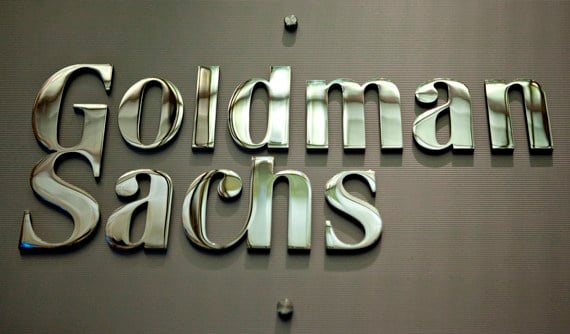Goldman Sachs failed to implement policies to keep its stock analysts from tipping select clients about upcoming research changes, SEC says.
Goldman Sachs Group Inc. will pay $22 million to resolve U.S. regulators’ claims that the firm failed to implement policies to keep its stock analysts from tipping select clients about upcoming research changes.
Goldman Sachs held weekly huddles from 2006 to 2011 in which analysts discussed short-term trading ideas and traders shared their views of the markets, the Securities and Exchange Commission said in a statement today. The meetings created “a serious risk” that employees and clients could trade on the non-public information, the SEC said.
“Higher-risk trading and business strategies require higher-order controls,” SEC Enforcement Director Robert Khuzami said in the agency’s statement. “Despite being on notice from the SEC about the importance of such controls, Goldman failed to implement policies and procedures that adequately controlled the risk that research analysts could preview upcoming ratings changes with select traders and clients.”
Goldman Sachs paid a $10 million fine last year to resolve similar claims from state regulators in Massachusetts and was among 10 securities firms that paid disgorgement and civil penalties totaling $1.4 billion to settle claims related to a probe of analysts’ conflicts of interest in 2003.
“We are pleased to have resolved this matter,” Goldman Sachs spokesman Michael DuVally said today in an e-mail.
Under the settlement, Goldman Sachs will pay about $11 million to the SEC and the same amount to the Financial Industry Regulatory Authority, the Washington-based brokerage industry regulator.
New Legislation
Analyst conflicts of interest garnered attention this month after President Barack Obama signed legislation that critics said will undo some rules emanating from the 2003 settlement. Under the law, regulators are no longer able to write or maintain rules that restrict investment bankers from arranging communications between analysts and investors when dealing with firms with less than $1 billion in gross annual revenue.
In 2007, Goldman Sachs launched the Asymmetric Service Initiative, a program in which research analysts called a select group of about 180 hedge-fund and investment-management clients to share information and trading ideas from the huddles, the SEC said. The huddles and the program were an “extensive undertaking” to improve the performance of the firm’s traders and boost commissions from clients, according to the agency.
Research analysts’ contributions to the huddles were considered in their performance evaluations and could impact their compensation, the SEC said.
Generate Profits
In an administrative order filed today, the SEC cited an e- mail from a Goldman Sachs manager that said employees had a responsibility to generate trading ideas for huddles “based on your view of the stocks that will move short term” and generate profits for the trading desk.
Goldman Sachs traders who participated in the huddles were primarily those who dealt directly with customers, including market-making and client-facilitation traders from its securities division, the SEC said. Until 2009, members of Goldman Sachs’s Franchise Risk Management Group, who were authorized to establish large, long-term positions on behalf of the firm, also attended the huddles, according to the order.
The huddle program created a “serious and substantial risk” that analysts would share material, non-public information about their research with clients, many of whom were frequent, high-volume traders, the SEC said. Goldman Sachs failed to establish and enforce policies and procedures to prevent misuse of the information, according to the agency.
--Bloomberg News--







